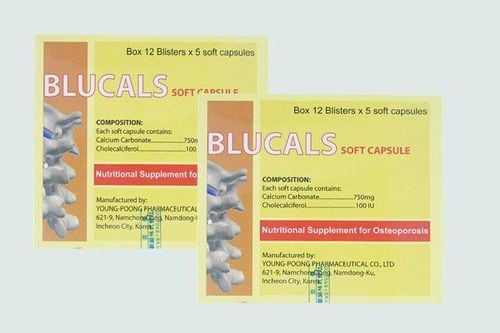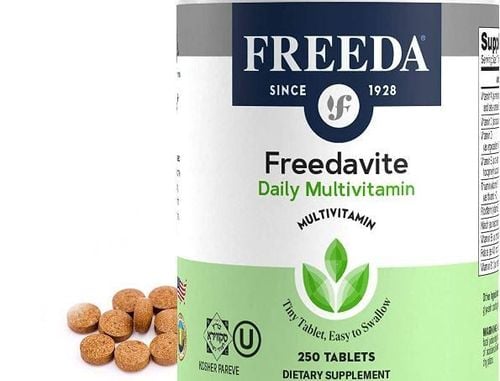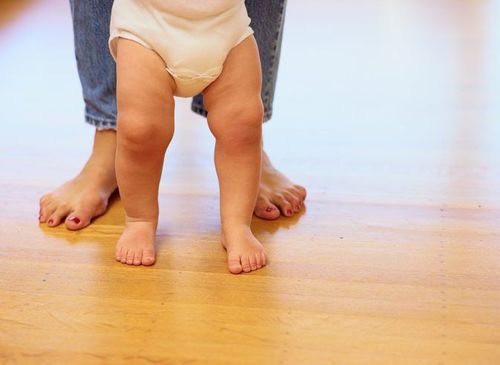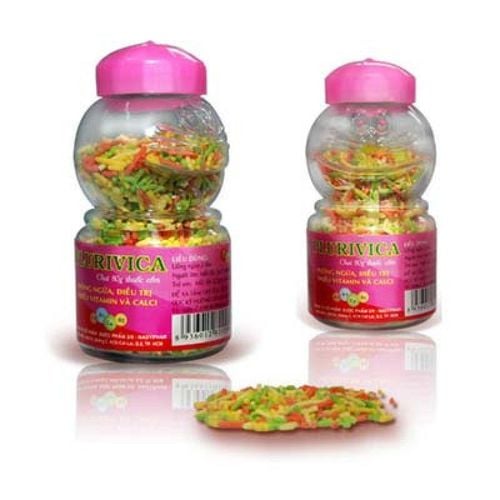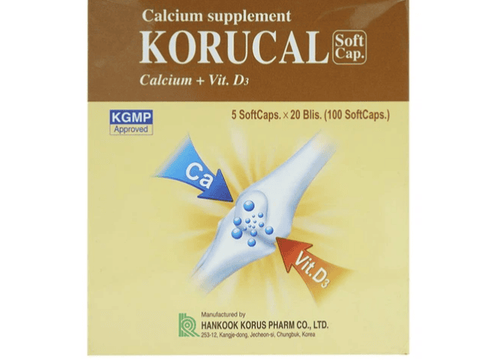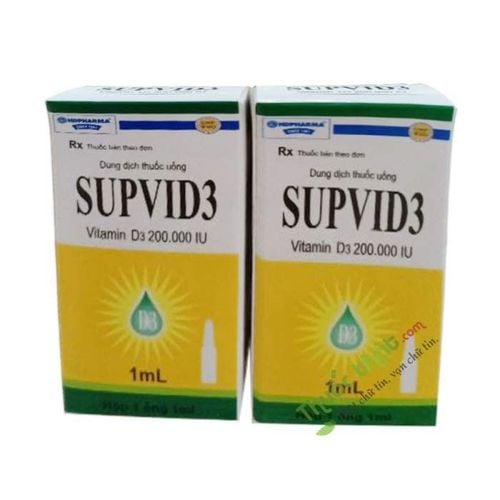This is an automatically translated article.
The article was professionally consulted with Master, Doctor Ngo Thi Oanh - Pediatrician - Department of Pediatrics - Neonatology - Vinmec Ha Long International General Hospital.Children's bones are continuously growing throughout childhood. They grow fastest during toddlerhood and puberty. Therefore, strengthening bone health is a necessity.
1. Calcium supplement for baby
Calcium deficiency causes young children to face health problems such as growth retardation, rickets, growth retardation and behavioral disorders,...However, excess calcium also causes other harms such as apples Constipation, heat in, inhibit absorption of zinc and iron in children, can cause ureteral stones, kidney stones or atherosclerosis and kidney failure,...
Therefore, calcium supplementation for children is a problem. Important issues to consider before proceeding.
2. When to supplement calcium for children?
Children's bones are constantly growing during childhood, growing most rapidly during toddlerhood and puberty. Bones continue to get stronger and stronger until “peak bone mass” is reached. This usually occurs between the ages of 18 and 25.Strengthening your baby's bones during childhood will provide protection against diseases like osteoporosis. Calcium is especially important during puberty when bones grow faster than at any other time. Puberty usually occurs between the ages of 11 and 15 for girls and between the ages of 12 and 16 for boys. According to research, on average, children and adolescents in this age group do not get enough calcium to develop bone health.

Bổ sung canxi cho trẻ cần lựa chọn thời điểm phù hợp
Not sleeping well, often crying and often startled when sleeping Sweating a lot, especially when sleeping Hair falls out into a line shaped like a scarf on the back of the neck Often appears laryngospasm causes hiccups, difficulty breathing,... In severe cases, breathing stops and rapid breathing, increased heart rate can lead to heart failure. For young children: slow fontanelle, flat head, delayed teething, bow legs, slow development of motor skills,...
3. Lifestyle to promote bone health
Two nutrients that are especially important for building strong bones are calcium and vitamin D.3.1 Calcium Foods high in calcium include:
Dairy foods like: milk, cheese and yogurt,... Green vegetables, leaves: peas, dried figs, nuts, seeds and anything Something is fortified with calcium, including some soy and almond milk.

Sữa chứa lượng lớn canxi
Vitamin D is made in our skin when it is exposed to sunlight during the summer months (late March or April to late September). It is important to never let a child's skin become red or begin to burn. Babies under 6 months shouldn't be in direct sunlight.
Only a few foods are good sources of vitamin D. These include oily fish, eggs and foods fortified with vitamin D, such as spreads and some breakfast cereals.
Vitamin D supplements when prescribed by a doctor:
Children under 6 months of age: The Ministry of Health recommends that all babies have reduced vitamin D from birth to ensure adequate nutrients. Babies who are having more than 500ml (about a pint) of baby formula do not need vitamins because the formula is fortified with vitamins. Under 5 years: It is recommended that all children aged 6 months to 5 years get a food or vitamin supplement containing vitamins A, C and D each day. Children over 5 years: Children over 5 years of age and adults should consider taking a daily supplement containing 10 micrograms (mcg) of vitamin D, especially during winter when the weather is less exposed to natural sunlight. .
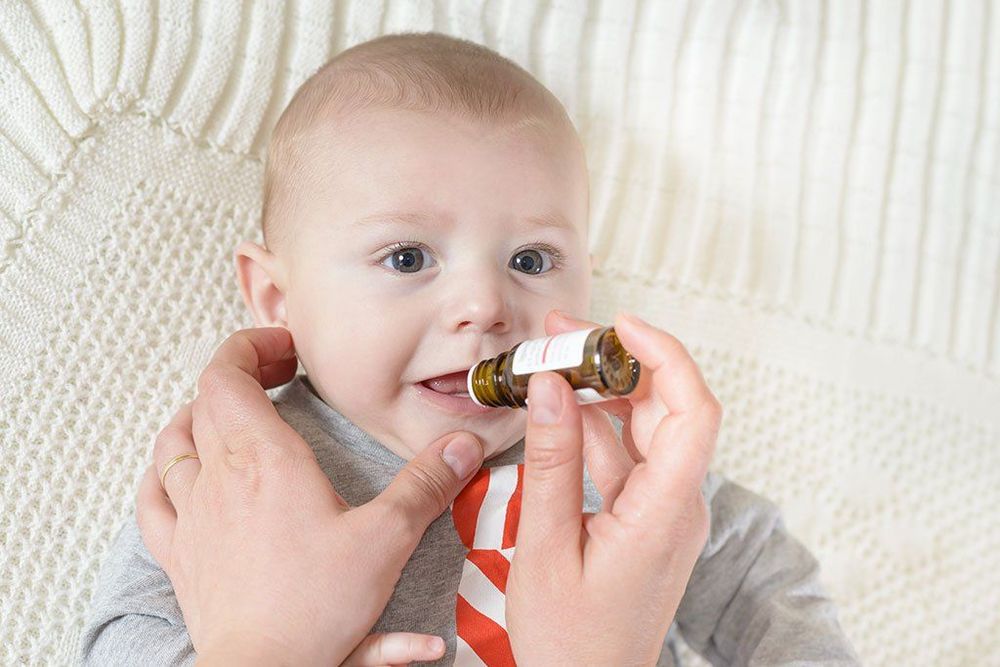
Bổ sung vitamin D cho trẻ sơ sinh cần tham khảo ý kiến của bác sĩ
Toddlers should be encouraged to actively play on the floor. Children who are able to walk on their own should be physically active each day for at least 180 minutes (three hours) spread out throughout the day. This should include some bone-strengthening activities like climbing and jumping. Children ages 5 to 18 need at least 60 minutes (1 hour) of physical activity each day. See physical activity guidelines for children and young adults. Try not to let your child be sedentary for long periods of time. Limit the amount of time your child spends watching TV, using the computer, or playing video games. 3.4 Eating disorders and bone health Eating disorders affect the bone health of people of all ages, and both men and women. But females are more likely to be affected than males, especially during the teen years.
Teenagers' bones are still growing and strengthening, and eating disorders like anorexia can affect their growth.
Low weight can lower estrogen levels, which can reduce bone strength. Poor nutrition and reduced muscle strength due to eating disorders can also reduce bone strength. If your teen has anorexia or other eating disorder, it's important for them to get medical advice early.

Khi trẻ có dấu hiệu sức khỏe bất thường, cha mẹ nên đưa trẻ đến gặp bác sĩ chuyên khoa
Please dial HOTLINE for more information or register for an appointment HERE. Download MyVinmec app to make appointments faster and to manage your bookings easily.
Article reference source: nhs.uk, webmd.com



